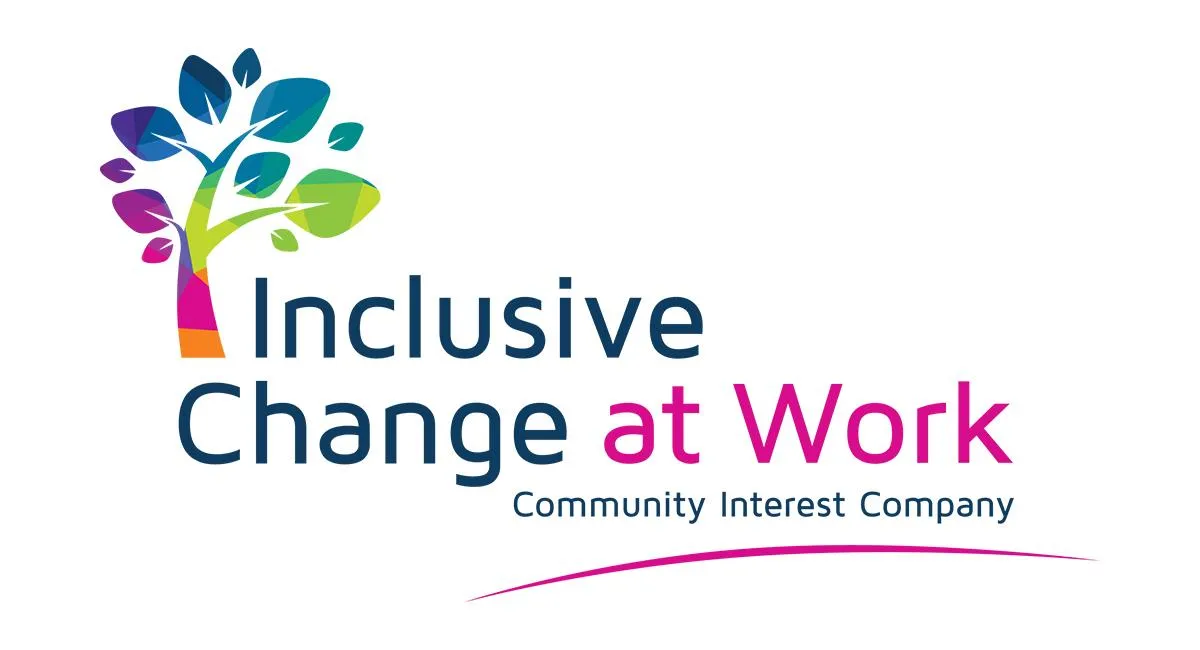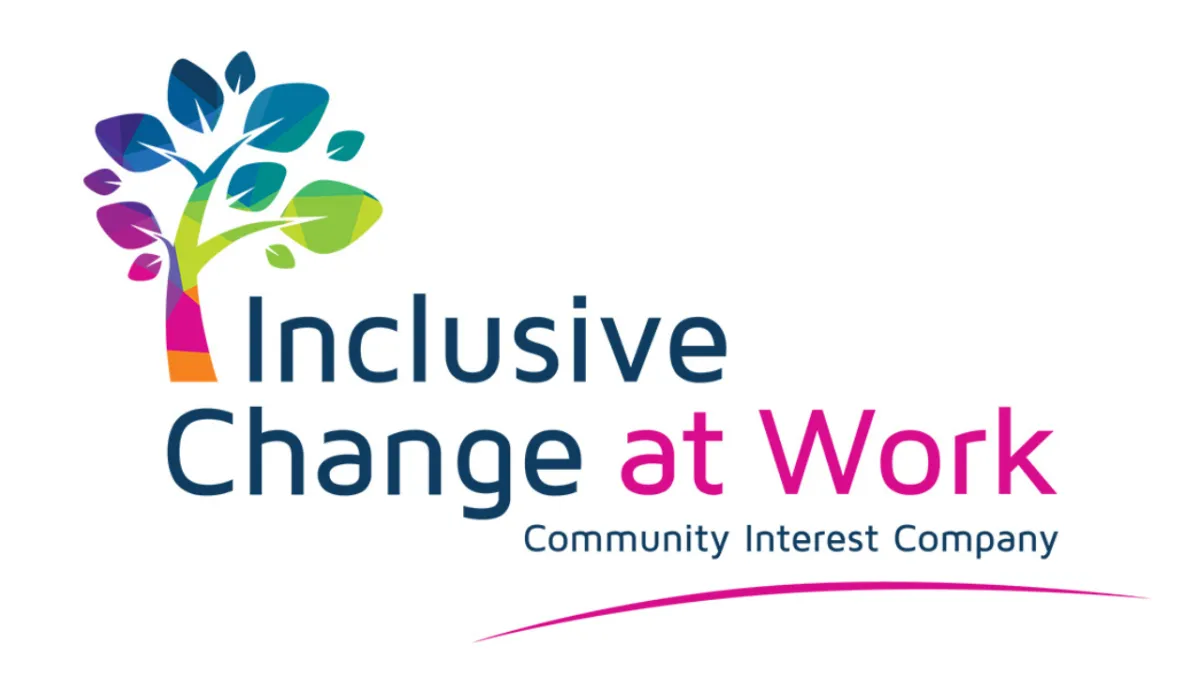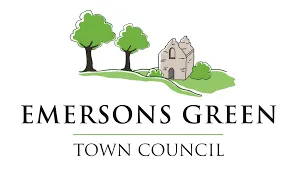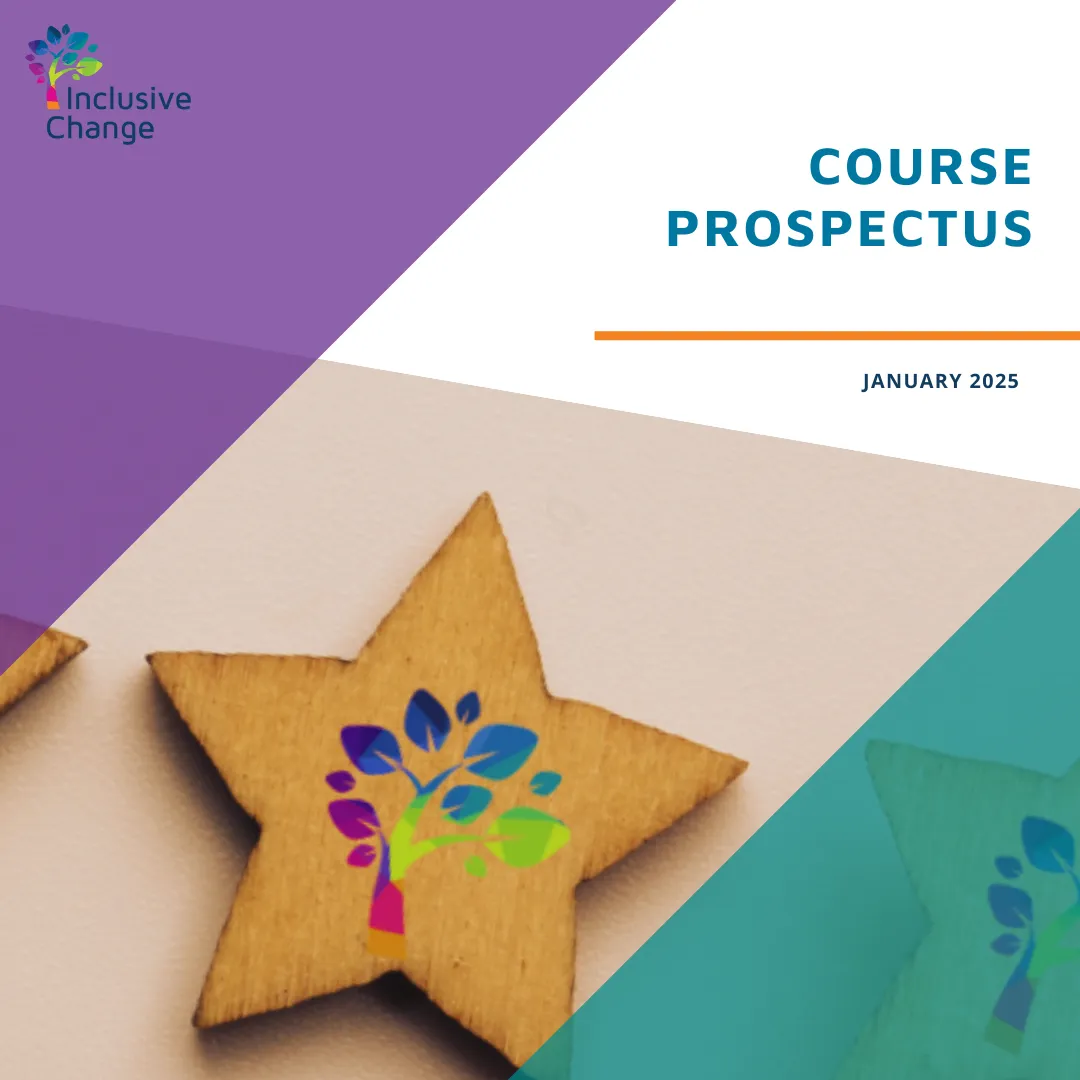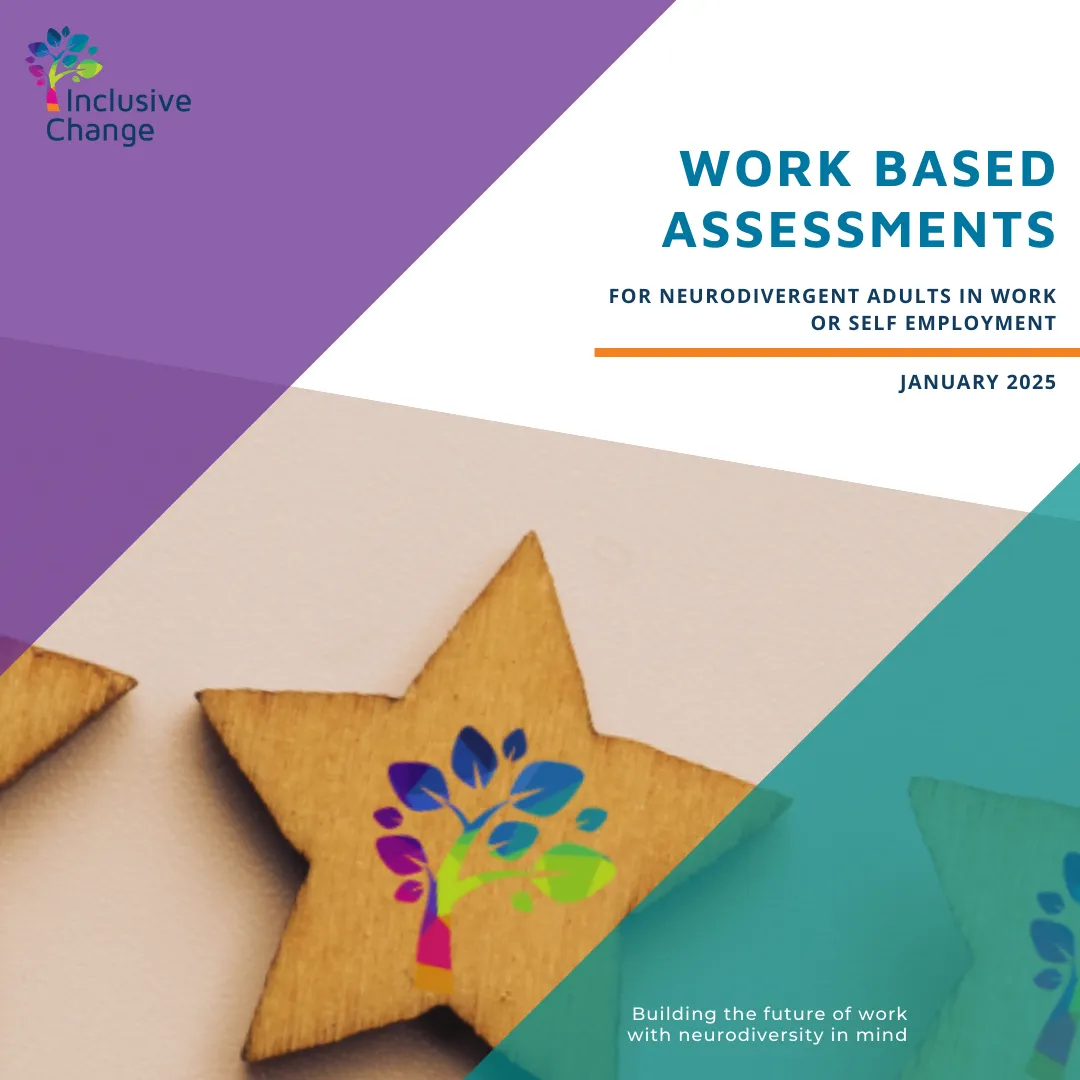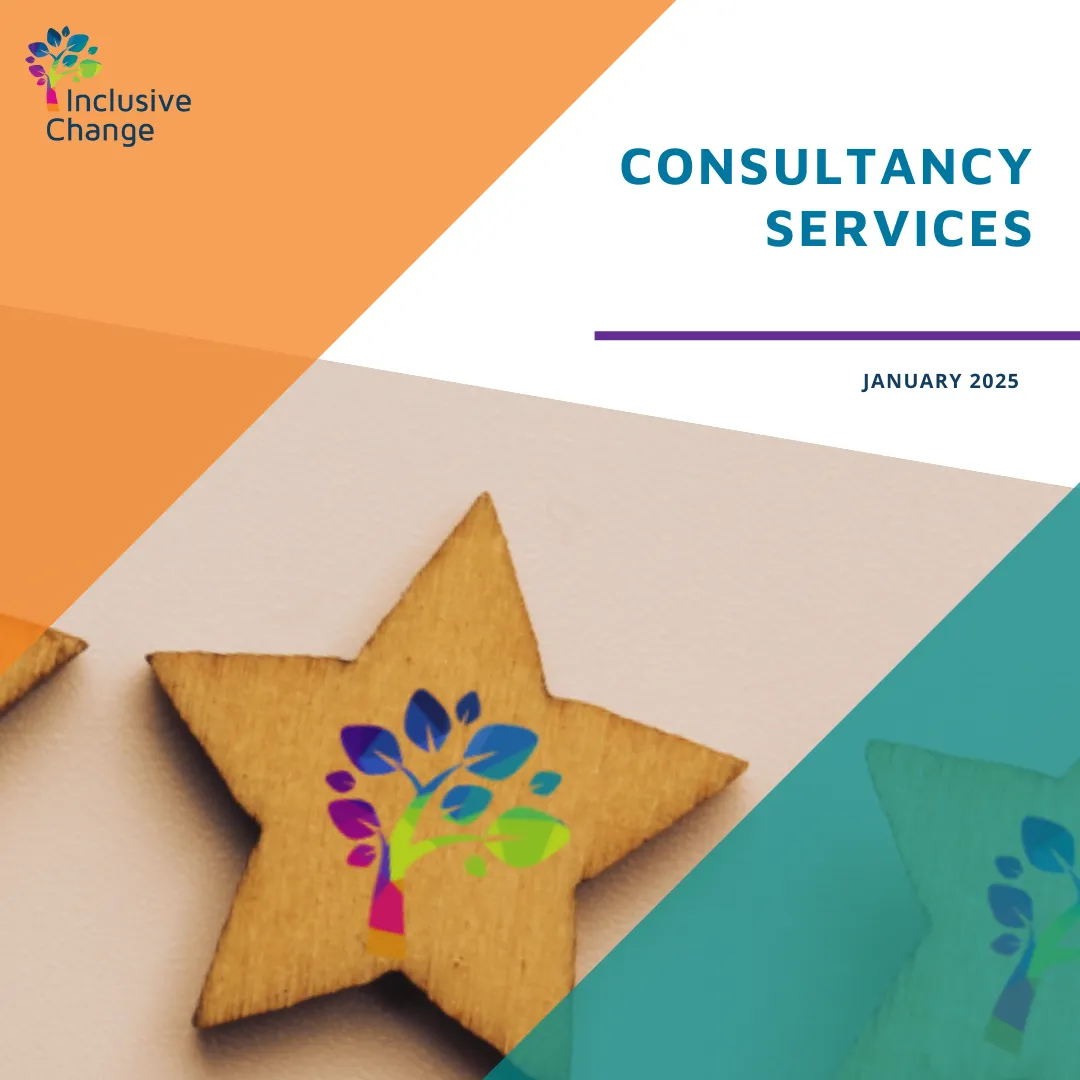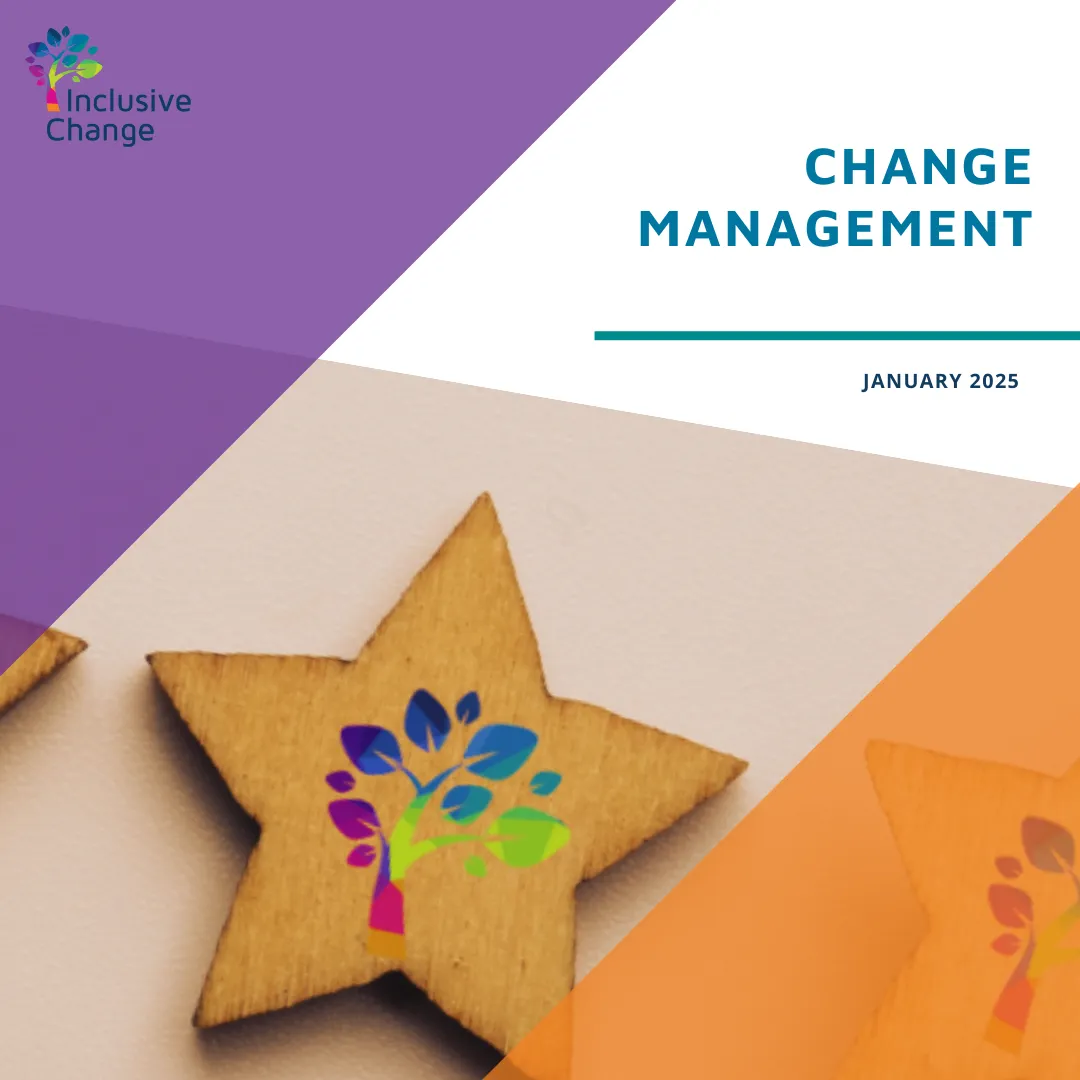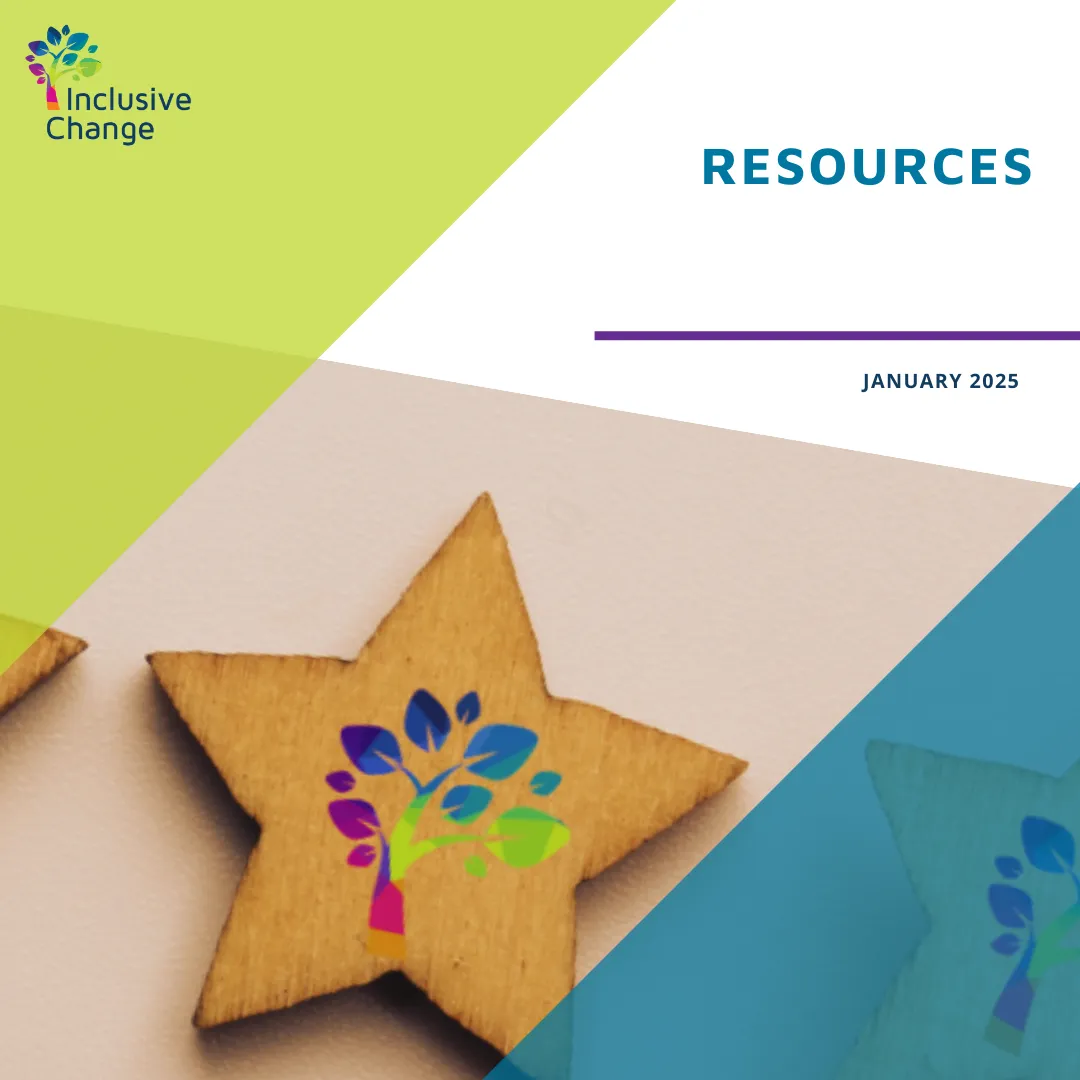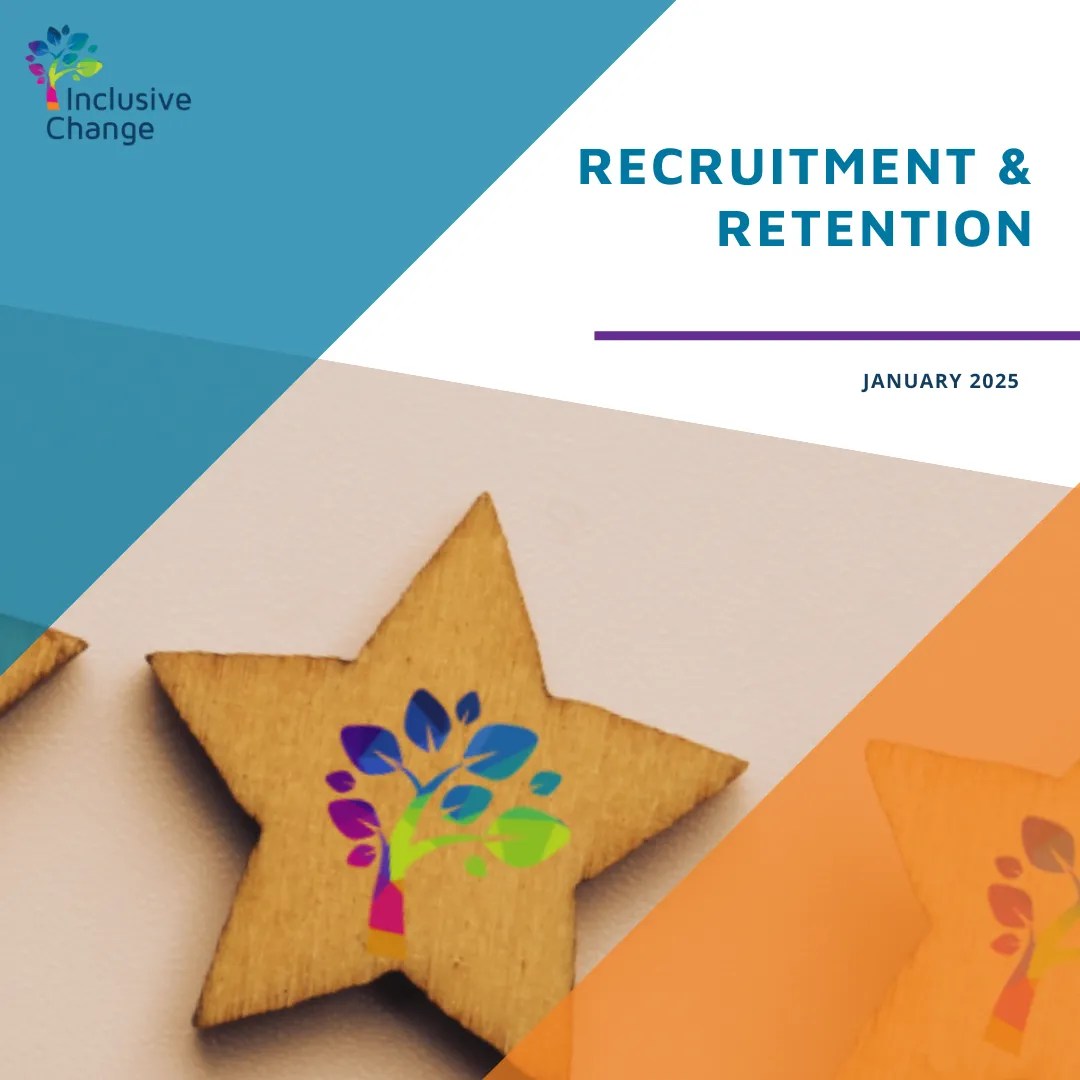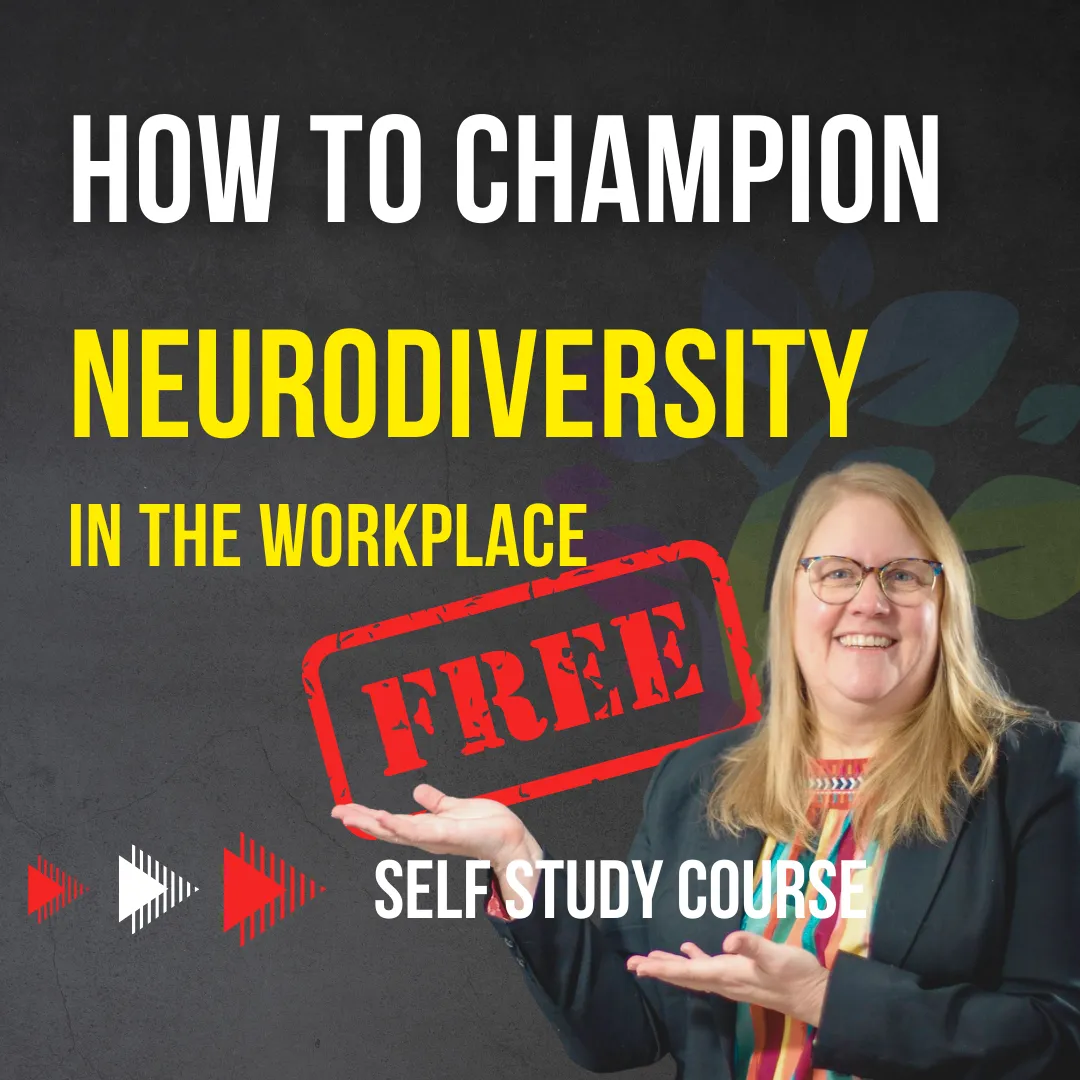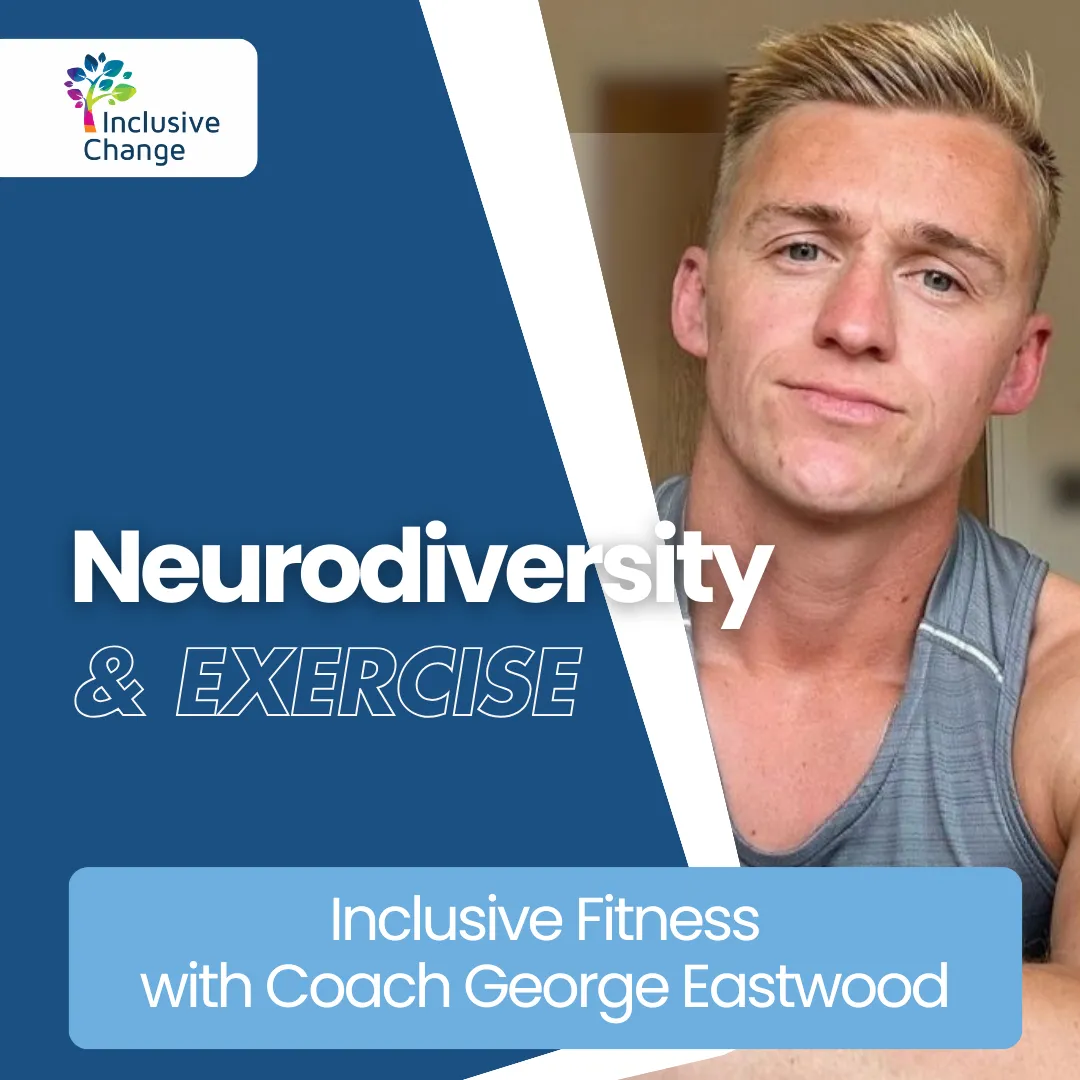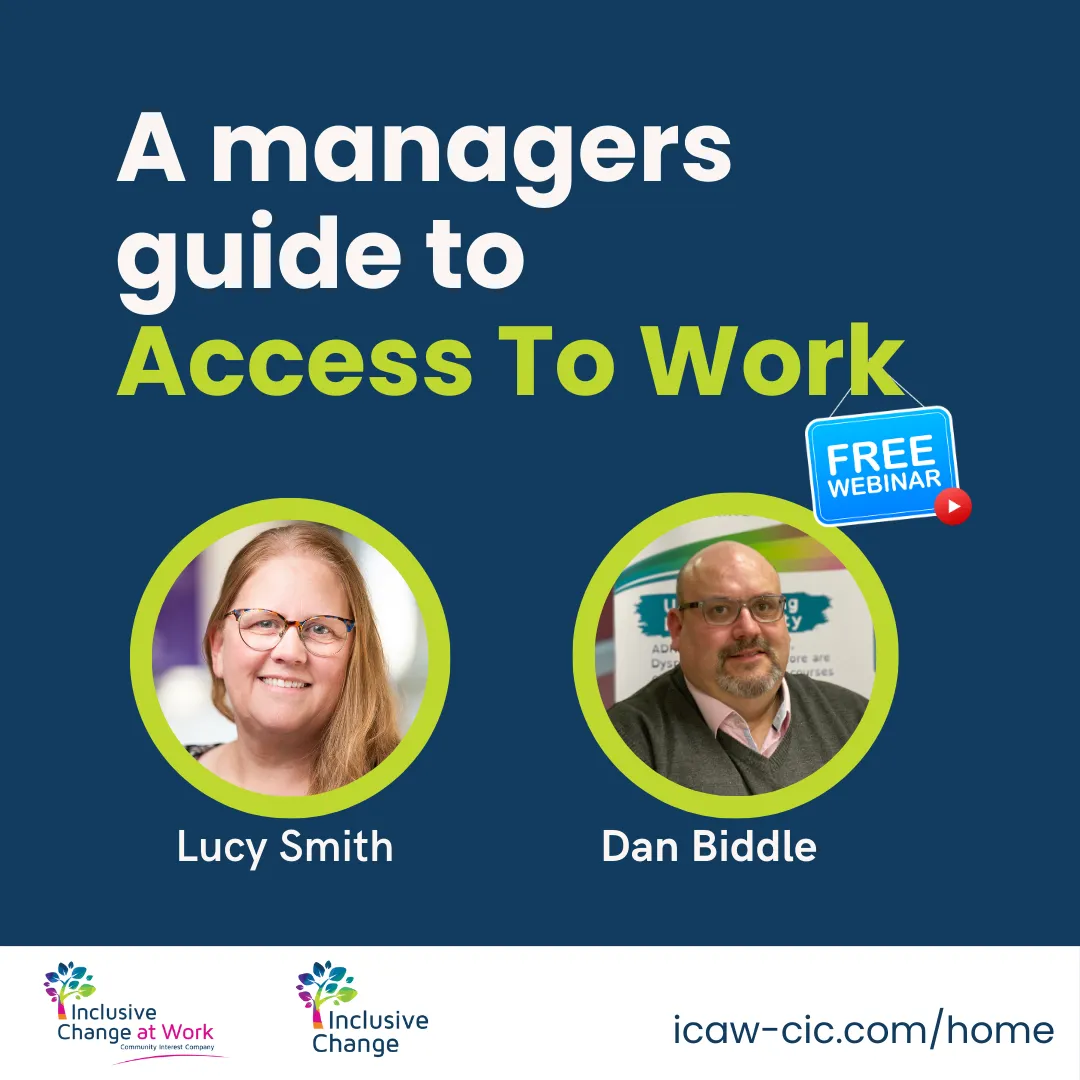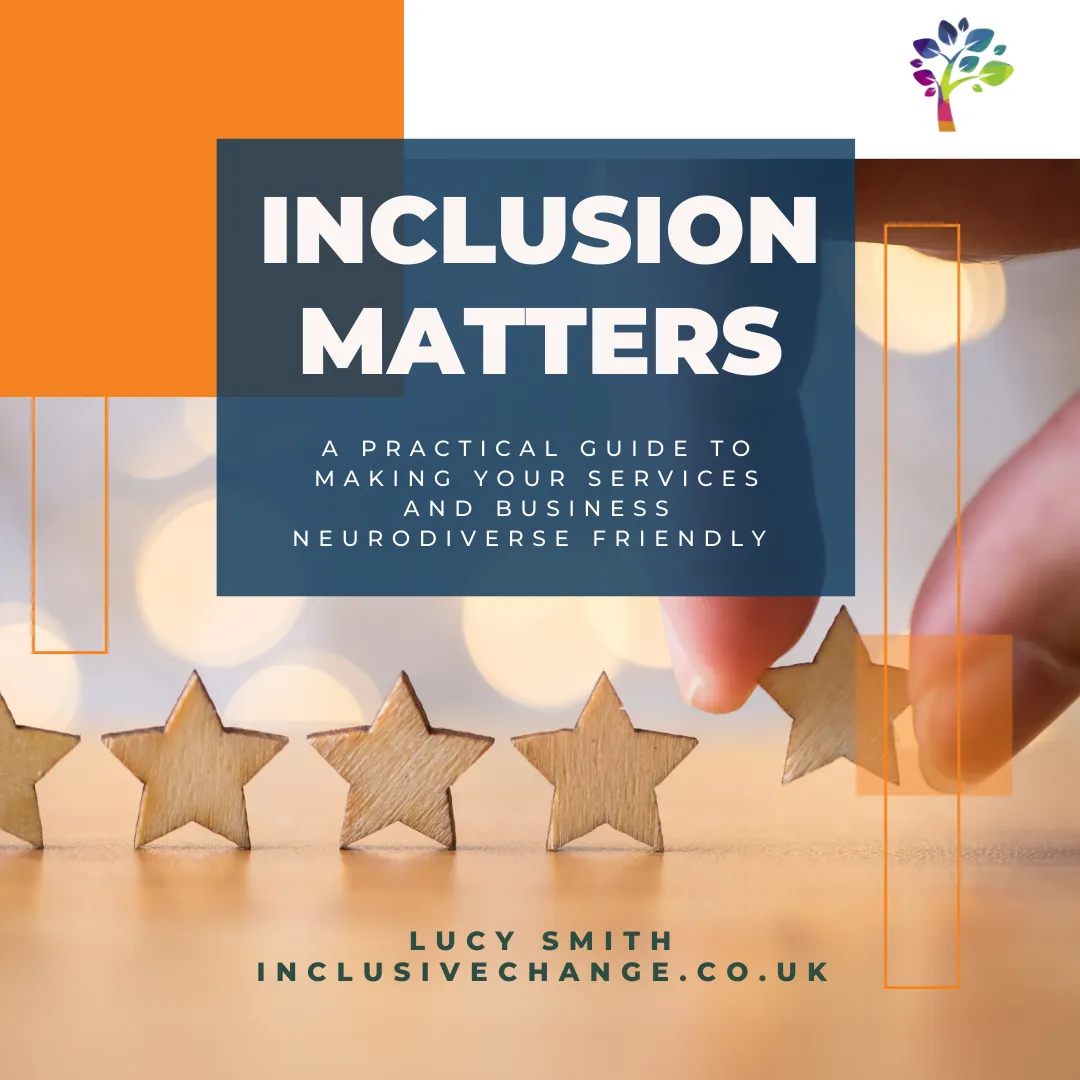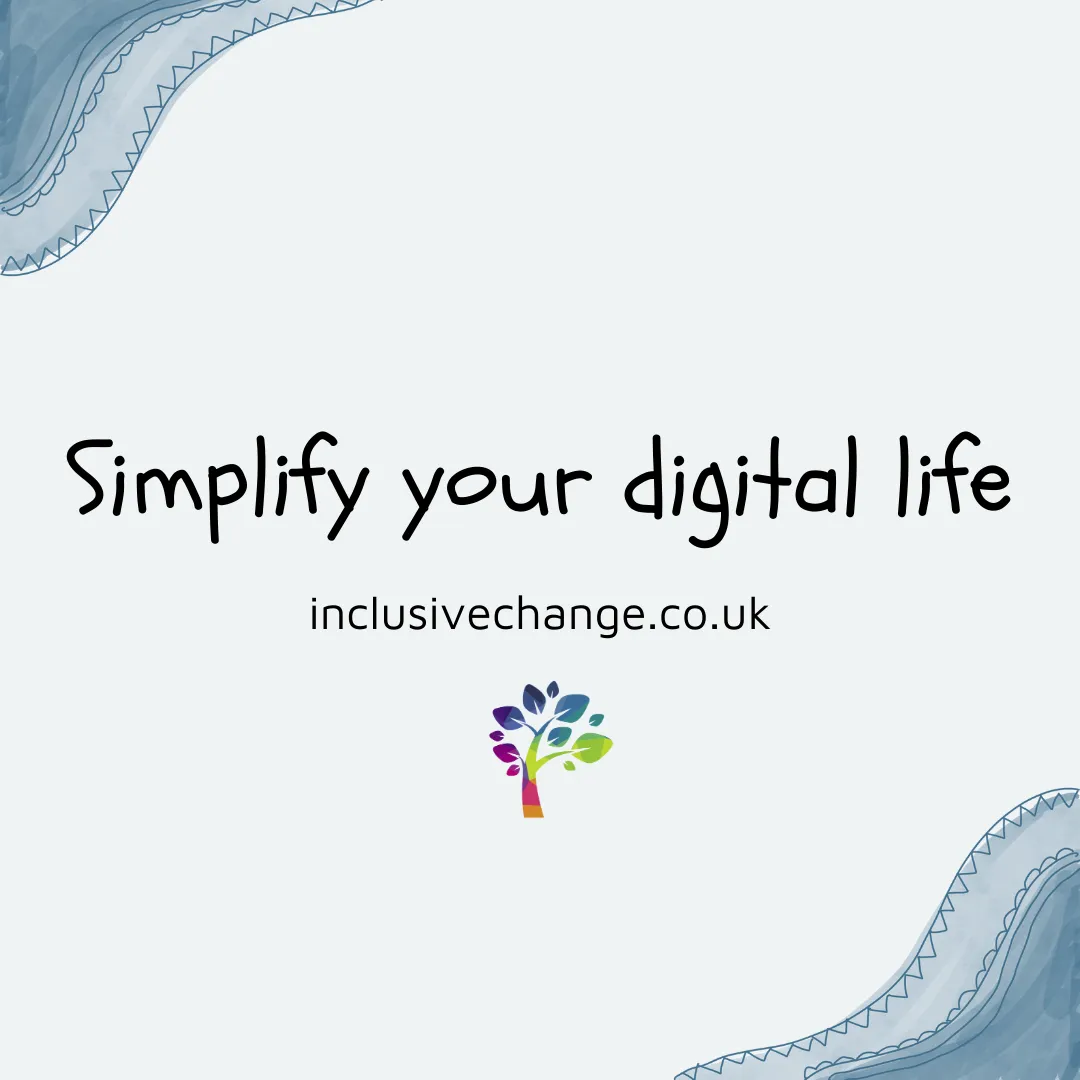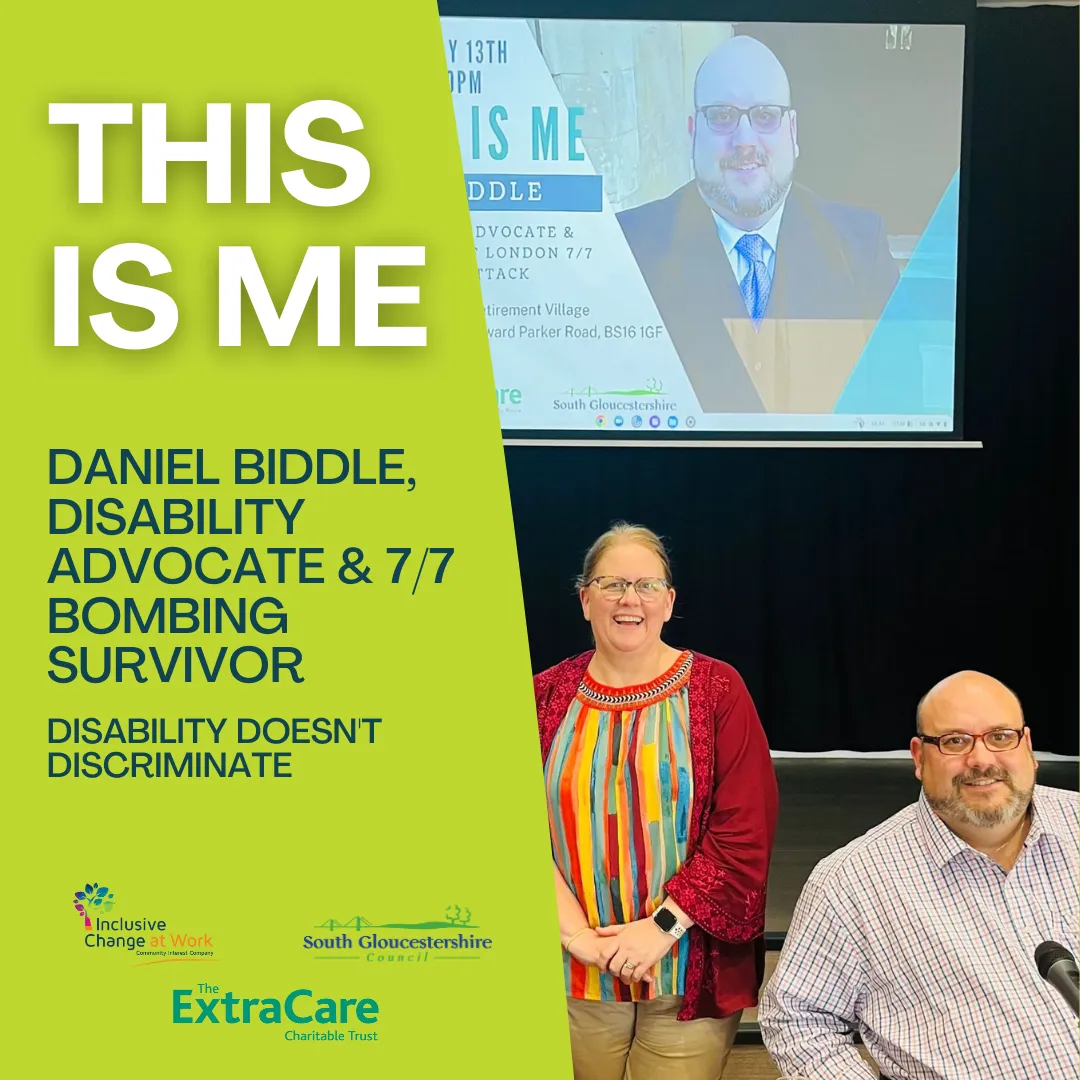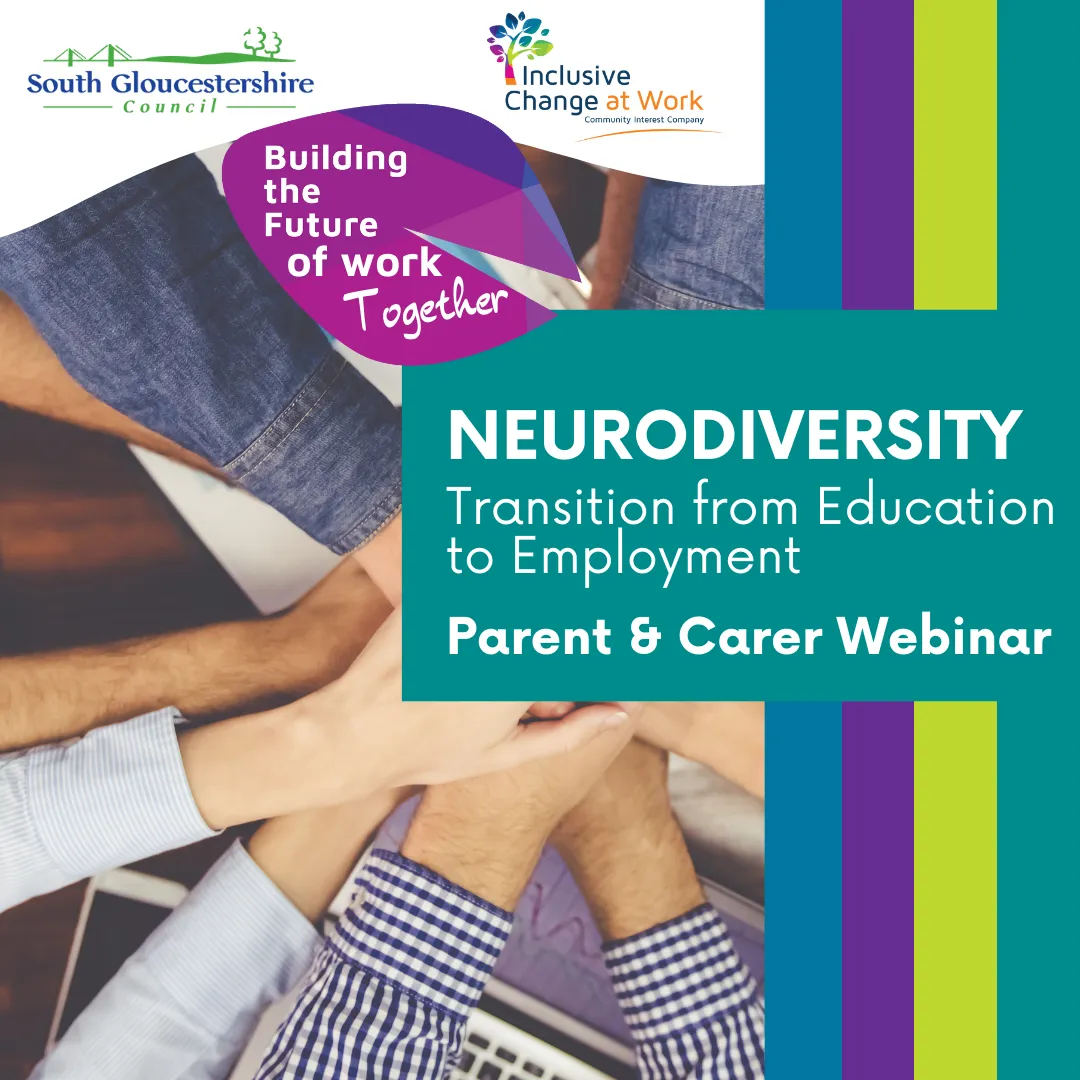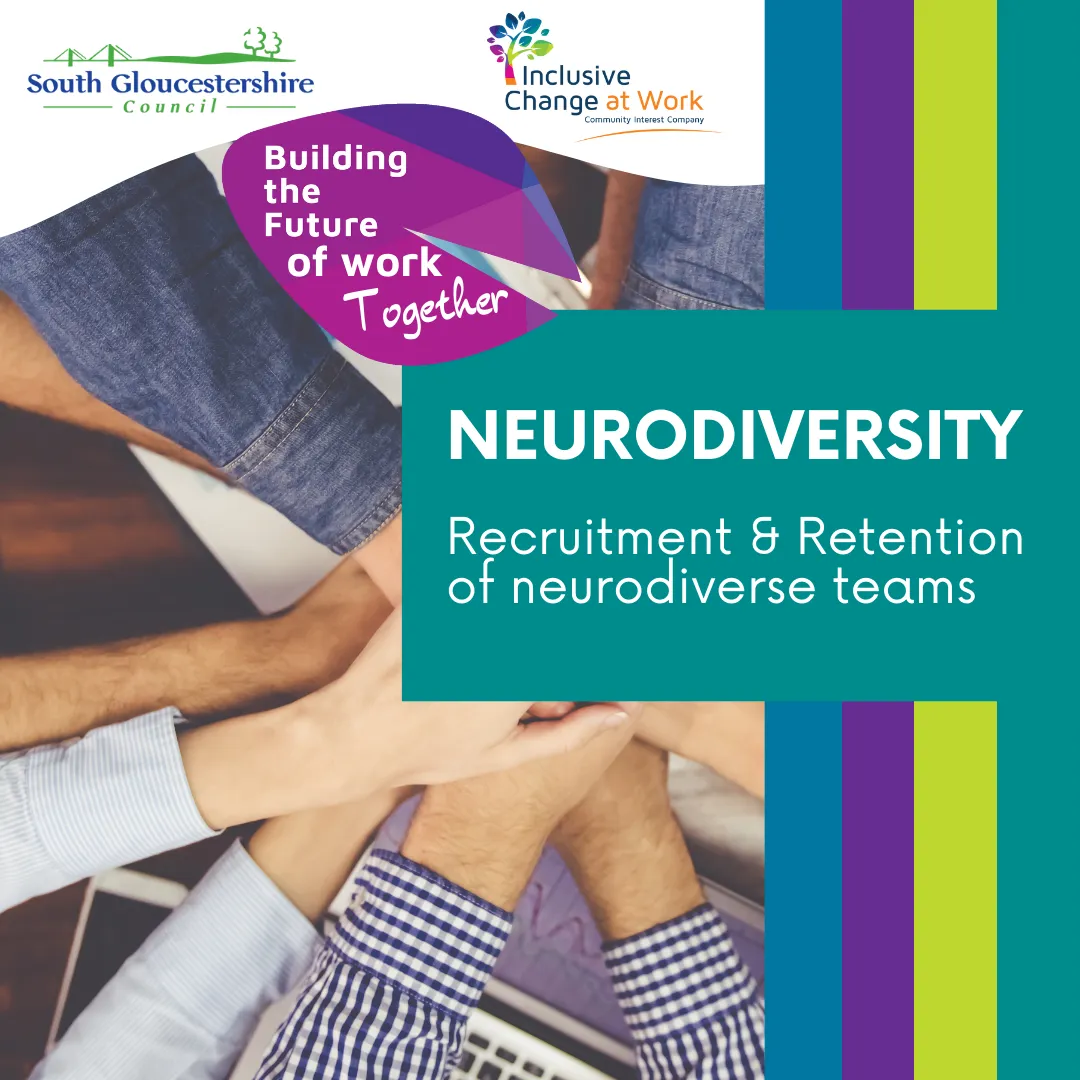Inclusive Change at Work
In the community
We want to thank you for attending our workshops in Emersons Green Village Hall, made possible with funding from Emersons Green Town Council. It has been wonderful to meet so many people and spark meaningful conversations about Inclusion.
We offer a variety of ways to collaborate and support your journey. Be sure to join our mailing list to stay informed about our latest projects, exclusive offers, and exciting initiatives.
To help you take your next steps, we’ve curated this page with valuable resources, insights, and new projects, designed to inspire and empower your conversations about neurodiversity. Dive in, explore, and Keep the Conversation Going!
A Recap of the Slides & Discussions
Let's Talk About Neurodiversity: Building an Inclusive Community Together
Date: 16th January 2025
Speaker: Lucy Smith
Key Takeaways From The Evening
Neurodiversity is Common but Overlooked – 1 in 7 people in the UK are neurodivergent, yet many face barriers in employment and inclusion.
Workplace Challenges Persist – Long assessment wait times, lack of disclosure (76%), and limited employer focus (49%) highlight the need for change.
Inclusive Workplaces Matter – Reasonable adjustments and open discussions help create supportive environments.
Younger Generations are Driving Change – 53% of Gen Z identify as neurodivergent, making inclusion more important than ever.
Action is Key – Safe spaces, advocacy, and meaningful support systems help neurodiverse communities thrive
Supporting Neurodivergent Families
Date: 30th January 2025
Speakers: Lucy Smith & SGPC
Key Takeaways From The Evening
Inclusive Spaces Foster Support – Creating environments where neurodivergent individuals feel safe and valued is essential for meaningful inclusion.
Resilience is Key – Building resilience through learning, coping strategies, and supportive frameworks helps neurodivergent families navigate challenges.
Workplace and Education Accessibility Matters – Reasonable adjustments in schools and workplaces ensure neurodivergent individuals can succeed without unnecessary barriers.
Open Dialogue Encourages Understanding – Safe spaces for discussion help break stigma, allowing neurodivergent individuals and allies to share experiences and seek support.
Ongoing Support and Resources Make a Difference – Access to helpful resources, events, and advocacy networks empowers neurodivergent communities to thrive.
Building the Future of Work With Neurodiversity in Mind
Date: 6th February 2025
Speakers: Lucy Smith & Andy Jackson
Key Takeaways From The Evening
Neuroinclusion is a Business Advantage – Embracing neurodiversity leads to increased innovation, productivity, and employee retention. Yet, many workplaces unintentionally create barriers for neurodivergent employees.
The Social Model of Disability Matters – Disability is not about the individual but the barriers in their environment. Simple workplace adjustments, like sensory-friendly spaces and flexible communication styles, can unlock neurodivergent talent.
Inclusion is Needed at Every Career Stage – From recruitment to promotion, neurodivergent employees face unique challenges. Clear job descriptions, structured onboarding, and strengths-based performance reviews help ensure fairness.
Recruitment & Progression Need Reform – Traditional hiring methods often exclude neurodivergent talent. Companies should prioritize skills-based hiring, alternative application methods, and clear promotion pathways.
Actionable Steps Make a Difference – Businesses should start by reviewing hiring practices, improving workplace accessibility, investing in mentorship, implementing inclusive policies, and increasing diverse representation
Menopause and Neurodiversity
Date: 20th February 2025
Speakers: Kirsty Brown, Fitness for Life, & Lucy Smith
Key Takeaways From The Evening
Menopause Can Intensify Neurodivergent Traits – Changes in hormones can amplify difficulties with memory, focus, sensory sensitivity, emotional regulation, and fatigue, making daily life more challenging.
Dopamine & Cognitive Support Are Crucial – Activities like exercise, music, creative outlets, and structured routines help maintain dopamine levels, while a diet rich in protein, omega-3s, and key micronutrients supports brain function.
Self-Regulation Strategies Help Manage Symptoms – Sensory tools, mindfulness techniques, and cognitive-behavioral strategies can help counteract brain fog, mood swings, and attention difficulties.
Hormonal & Cognitive Support Can Be Beneficial – Hormone Replacement Therapy (HRT) may help some individuals, while structured routines, planners, and reminders aid in managing cognitive challenges.
Community & Environmental Adjustments Matter – Reducing sensory overload, seeking peer support, and creating neuroinclusive workplace environments can improve well-being and productivity for neurodivergent individuals going through menopauseHere's some stuff
Digital Wellbeing for Young People
Date: 6th March 2025
Speakers: Lucy Smith & Emily Chittell
Key Takeaways From The Evening
The Impact of Digital Overuse – Excessive screen time, especially on social media, can negatively affect mental health, as seen in Owen’s experience of using their smartphone to escape emotions but ultimately worsening their mood.
Balancing Digital Consumption – It's important to be mindful of how digital tools influence our emotions and well-being, avoiding over-reliance on social media for coping.
Creating Digital Boundaries – Simplifying digital life can improve mental health, making space for healthier habits and real-world connections.
Support and Adjustments – Neurodivergent individuals may benefit from reasonable adjustments and access-to-work accommodations to create a more balanced digital experience.
Reasonable Adjustments and Access to Work for Neurodiverse Minds
Date: 20th March 2025
Speakers: Lucy Smith & Support Team
Key Takeaways From The Evening
Legal Obligation for Employers: Under the Equality Act 2010, employers must make reasonable adjustments to ensure that disabled employees are not at a substantial disadvantage in the workplace.
Defining Reasonable Adjustments: Adjustments can include changes to the workplace, working arrangements, task execution, or providing necessary support and equipment.
Disclosure and Employer Responsibility: Employees need to disclose their disabilities for employers to act on their duty to make adjustments. Employers are not obligated to assume or act on ambiguous signs of a disability.
Balancing Adjustments with Job Requirements: Adjustments should create fairness without lowering the essential standards of a role. Selection criteria should be inclusive but still maintain job integrity.
The Business and Cultural Benefits: Implementing reasonable adjustments fosters an inclusive workplace, reduces staff turnover, and leads to broader innovations that benefit all employees

Recommended Groups and Services
Articles & Reports
30% More Productive: The ROI of a neurodiverse workforce - 2023
New data suggests that 15% to 20%
of the population may be neurodivergent – up from estimates of 5% to 10% just five years ago. This shift underscores the critical need for employers to broaden the horizons of their diversity, equity and inclusion (DEI) efforts to encompass neuro-inclusion
Half of neurodivergent employees miss work due to lack of support - March 2024
Half of neurodivergent employees have taken time off work due to their neurodivergence, a 5% rise from last year, according to City & Guilds’ Neurodiversity Index. The report also found that 36% received no workplace support, and 18% didn’t know where to seek help.
New Survey by The Harris Poll Reveals Workplace Stigma for Neurodivergent Employees - May 2024
Understood.org, a leading nonprofit empowering more than 70 million neurodivergent people who have learning and thinking differences, such as ADHD and dyslexia, today announced the results of a Harris Poll of over 2,000 U.S. adults ages 18+. The poll shines a light on the challenges and opportunities facing people with learning and thinking differences, such as ADHD, dyslexia, or dyscalculia, in the workplace.

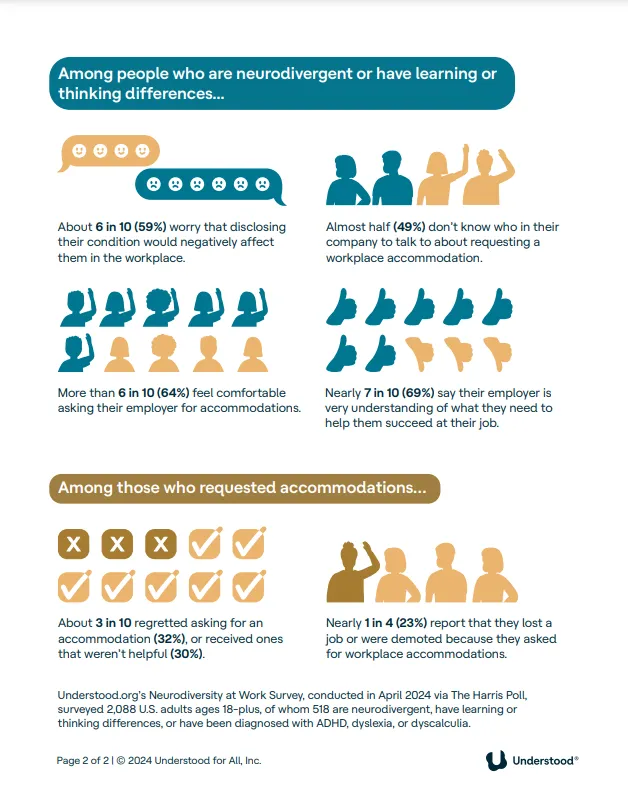
CIPD Neuroinclusion at work report 2024
The reality of neurodiversity means that every interaction at work takes place between people with different brains – yet, typically, very few organisations are thinking about neurodiversity or neuroinclusion. This represents a significant missed opportunity for organisations looking to address their key talent priorities at the same time as addressing inequalities at work faced by neurodivergent people
Meet Your Hosts and Expert
Speakers

Lucy Smith
Lucy is the founder of Inclusive Change and Inclusive Change at Work CIC. She has lived experience of neurodiversity and has been working in the area of neurodiversity for 6 years. Lucy combines a career in change management in internationally renowned organisations with experience in education to create thoughtful and inspiring training and consultancy services.
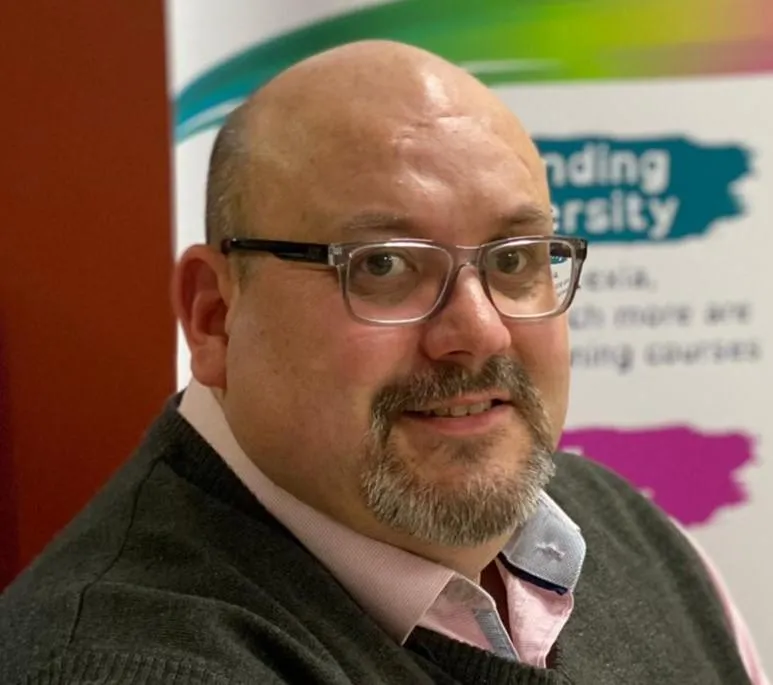
Daniel Biddle
Daniel is a highly experienced accessibility consultant with extensive experience of disability. Daniel has particular expertise in acquired disability, including acquired neurodiversity. He established the National Disability Employment & Advisory Service in 2022 and focuses on supporting neurodivergent young people & adults into employment.
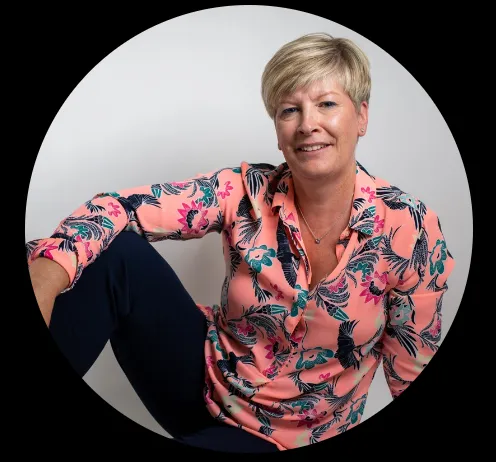
Kirsty Brown
Kirsty is a proactive, self-motivated individual with managerial experience in motivating teams and providing exemplary service. As a personal trainer and women's health coach, I use an empathetic approach to set and monitor achievable goals, adapting strategies to support clients through life's challenges. My expertise in menopause coaching includes workshops that empower women to confidently make lifestyle changes and navigate difficult times.

Vicky Henderson
Vicky is a multi-award-winning coach, mentor, speaker and trainer. She specialises in working with young people (11-24yrs) helping them grow in confidence, feel happy and generate hope and excitement for a better future.
In addition to working with young people, Vicky also works with parents, schools and employers, to ensure that all young people are afforded the support and help they need to thrive.

Andy Jackson
Andy is a Non-Executive Director of Inclusive Change at Work CIC, as well as an entrepreneurial and leadership coach and a dedicated advocate for neurodivergent individuals.
As a parent to a young adult navigating life with undiagnosed neurodivergence, Andy brings both professional expertise and personal insight to their work.
A skilled coach, facilitator, and trainer, Andy is passionate about enhancing organisational performance and supporting teams to thrive.
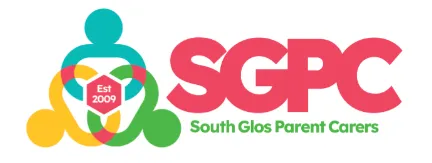
South Glos Parent Carers
South Glos Parent Carers (SGPC), the local parent carer forum that represents & supports parent carers of children and young people with Special Education Needs and Disabilities (SEND) in South Gloucestershire. Driven by a desire to make a difference for every SEND family in South Gloucestershire, SGPC attend meetings across the education, health and social care sectors to ensure service providers understand the challenges families face, so that positive changes can be made. SGPC also offer support to parent carers, via online and drop-in support sessions as well as workshops on a range of SEND topics. The SGPC team are all parent carers themselves, so they truly understand the SEND journey & challenges. From their personal experiences & those of their community, they have gained valuable insight, information and a wealth of SEND knowledge.

Discover Project Sandbox: Shaping a Safer Digital Future
Inclusive Change at Work CIC proudly presents
Project Sandbox, a ground-breaking initiative designed to champion digital safety and disability inclusion.
In collaboration with the Avon & Somerset Police & Crime Commissioner, we’re creating an engaging series of podcast and radio episodes that dive deep into building safer digital spaces for disabled and neurodivergent individuals.
We invite you to be part of this important conversation and join us in driving meaningful change.
Stay tuned, get involved, and let’s make the digital world a place for everyone.
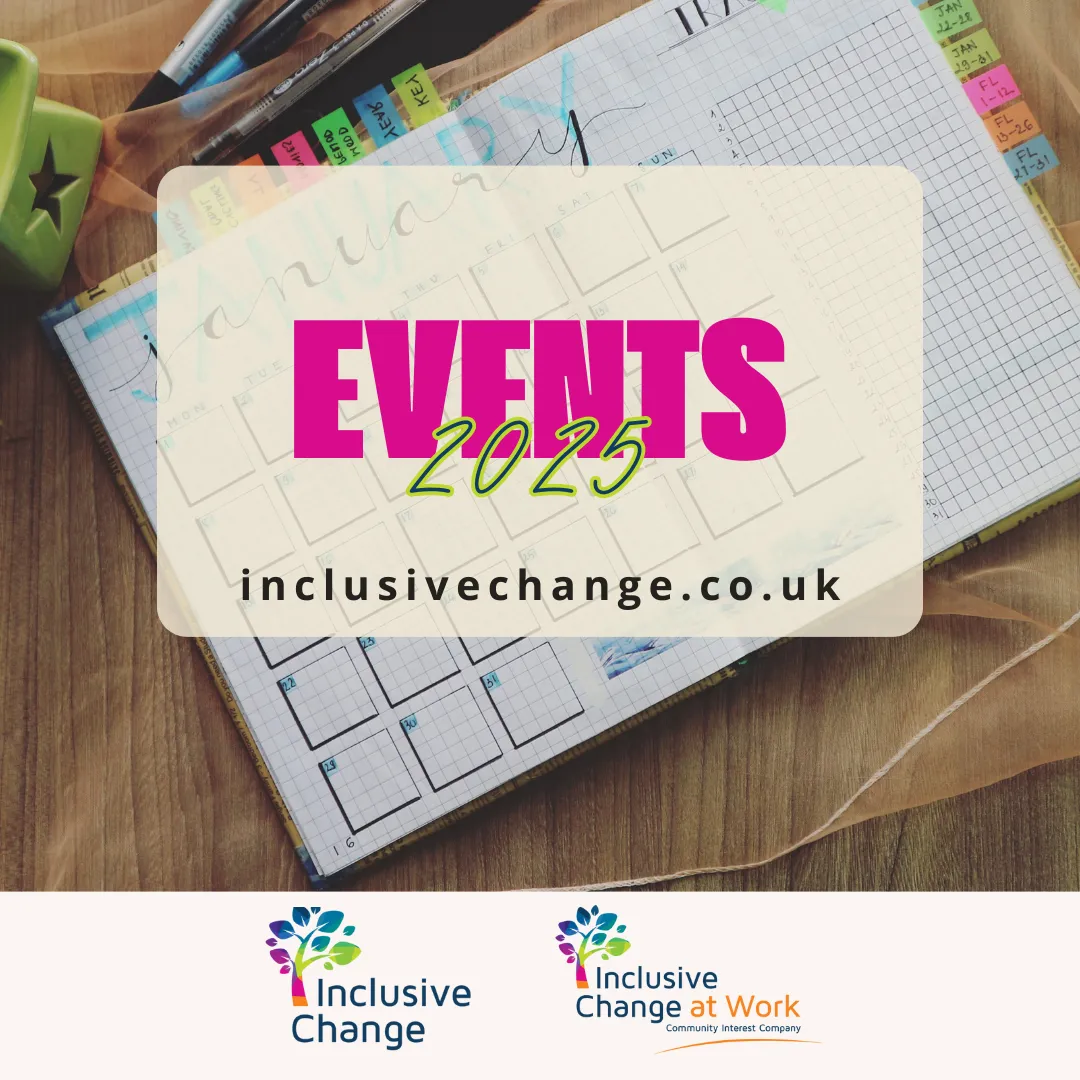
Important Dates in Our Calendar
June 2025
2nd - Understanding & Empowering ND in Sport - Glos. F.A
9th-10th - Festival of Sustainable Business - Bristol Beacon
12th - F'Up Exeter - The Bootlegger, Exeter
July 2025
22nd - F'Up Bristol - The Square Club, Clifton
Free Resources - Guides, Webinars & Courses
Check Out Our Latest Blog Posts
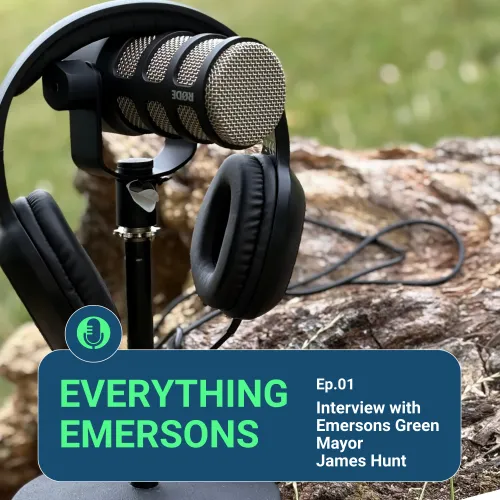
Future Voices: James Hunt, Mayor of Emersons Green
Future Voices: James Hunt, Mayor of Emersons Green
When most people think about politics, their minds jump straight to Westminster or Downing Street. But democracy begins much closer to home. In Emersons Green, that local voice is represented by James Hunt, the Mayor of Emersons Green. We spoke to James about what his role really involves, how young people can get involved in shaping the place they live, and why neurodiversity has been such an important part of his journey.
Watch a small snippet of our Everything Emersons interview with James. Full video is linked at the end of the blog post.
What Does the Mayor of Emersons Green Do?
The role of mayor often conjures up images of grand events and ribbon cuttings – and yes, that is part of it. James explained that his position has two sides: one ceremonial and one administrative.
On the ceremonial side, the mayor represents Emersons Green at community events, openings, and local celebrations. But behind the scenes, James is also responsible for running the town council itself. He chairs meetings, works with the clerk and staff to ensure the council is properly managed, and makes sure local taxes are spent transparently.
“All our decisions, meeting minutes and consultations are published online,” James explained. “We’re held to a very high standard, which is how it should be – everything we do needs to be open and accountable.”
For parents, this is an important reminder: the services, facilities and projects we see every day – from flowers in public spaces to youth services – are the result of decisions made right here in our own community.
Why Young People’s Voices Matter
One of the strongest themes from our conversation was how much James wants young people to have a say.
“Most people don’t really know what the town council does, young or old,” he admitted. “But your voice matters, and it can shape decisions.”
All town council meetings are public. Anyone – including young people – can attend and raise issues that matter to them, from skate parks to youth services. The council also runs consultations, often delivered through the door or shared on social media, where residents can give feedback on specific plans.
James is passionate about giving younger residents more opportunities to get involved. He believes schools and communities could do more to teach democracy in action, and that if young people are encouraged to participate early, they’ll grow up understanding their influence in society.
Living and Leading with Neurodiversity
James also shared his personal story of being neurodiverse. Diagnosed with ADHD at the age of five, he has lived with difference long before it was widely understood.
“There’s still a lot of prejudice,” he reflected. “People sometimes say, ‘Why don’t you just do it this way?’ without realising that neurodiverse people approach things differently. It doesn’t mean better or worse – just different.”
To explain, James used the analogy of left-handedness. A century ago, left-handed children were often forced to use their right hand, and no tools were designed for them. Once society began to accept left-handedness and provide the right tools – like left-handed scissors – the stigma disappeared, and people could thrive.
James believes we’re at a similar turning point with neurodiversity. By making simple accommodations and shifting perspectives, communities can unlock the strengths of neurodivergent people.
As mayor, he is determined to make local leadership more inclusive. “We have a duty to represent everyone – across disability, neurodiversity, income or any other difference. Inclusivity should be at the heart of everything we do.”
Building a Better Emersons Green
James has been on Emersons Green Town Council for more than 20 years, but the last few years as mayor have brought big changes.
During COVID-19, the council had to rethink its purpose. “We had a choice,” he explained. “Do people pay a pound a week for a council that does very little, or two pounds a week for one that makes a real impact?”
The decision was made to expand the council’s capacity, and the results are already visible. Full-time caretakers now keep public spaces attractive and welcoming. Flowers, tidy green areas, and better upkeep are noticeable improvements funded through local council tax.
Perhaps the most exciting development has been the introduction of a dedicated youth officer. This new role is focused on supporting young people, including the creation of a mobile youth centre that will travel to different parts of the community.
Looking ahead, James hopes to establish a Youth Council – a group of under-18s who would be given their own budget to spend on projects and priorities they believe are important. “It would be fantastic for teaching democracy, but also for making sure young people are represented in decisions that affect them,” he said.
Why It Matters for Families
For parents in Emersons Green, James’ message is clear: local democracy isn’t just for adults. Encouraging young people to get involved gives them confidence, skills, and a sense of belonging.
Attending a council meeting or responding to a consultation may not sound exciting at first, but it’s a real opportunity to influence decisions about youth services, parks, and facilities that families use every day. Parents can support by making young people aware of how local government works, and even attending meetings together.
Neurodiversity was another key theme of our conversation. For families raising neurodivergent children, James’ openness about his own ADHD journey is reassuring. It shows that difference doesn’t hold you back from leadership – in fact, it can bring unique strengths to the table.
How to Get Involved
If you’d like to learn more about Emersons Green Town Council, all meeting minutes, consultations, and contact details for councillors are available online at https://emersonsgreen-tc.gov.uk/ There are also noticeboards across the town displaying updates and events.
You can:
Attend a public council meeting (they are open to all).
Take part in consultations delivered through your door or shared online.
Encourage young people to raise their own ideas and attend meetings.
Stay updated on projects like the mobile youth centre and Youth Council.
Closing Thoughts
From chairing council meetings to planting flowers, the role of mayor covers far more than most of us realise. But as James Hunt reminded us, it’s not just about what the council does for us – it’s also about how we, as a community, get involved.
By being transparent, encouraging young voices, and recognising the value of neurodiversity, Emersons Green is building a stronger, more inclusive future. And with projects like a Youth Council on the horizon, there has never been a better time for young people to play their part.
Future Voices is all about amplifying the voices of local leaders and residents. James’ story shows that leadership starts at home – and that every voice, young or old, has the power to shape our community.
Future Voices is a youth-led interview and blog series from Everything Emersons, supported by Emersons Green Town Council. We celebrate the voices, stories, and experiences of young people in South Gloucestershire.
Inclusive Change At Work CiC
Bradbury House
Wheatfield Road
Bradley Stoke
Bristol
BS32 9DB
Companies House: 13271923
ICO registration: ZZB293922
UK register of Learning providers
UKRLP: 10090653
